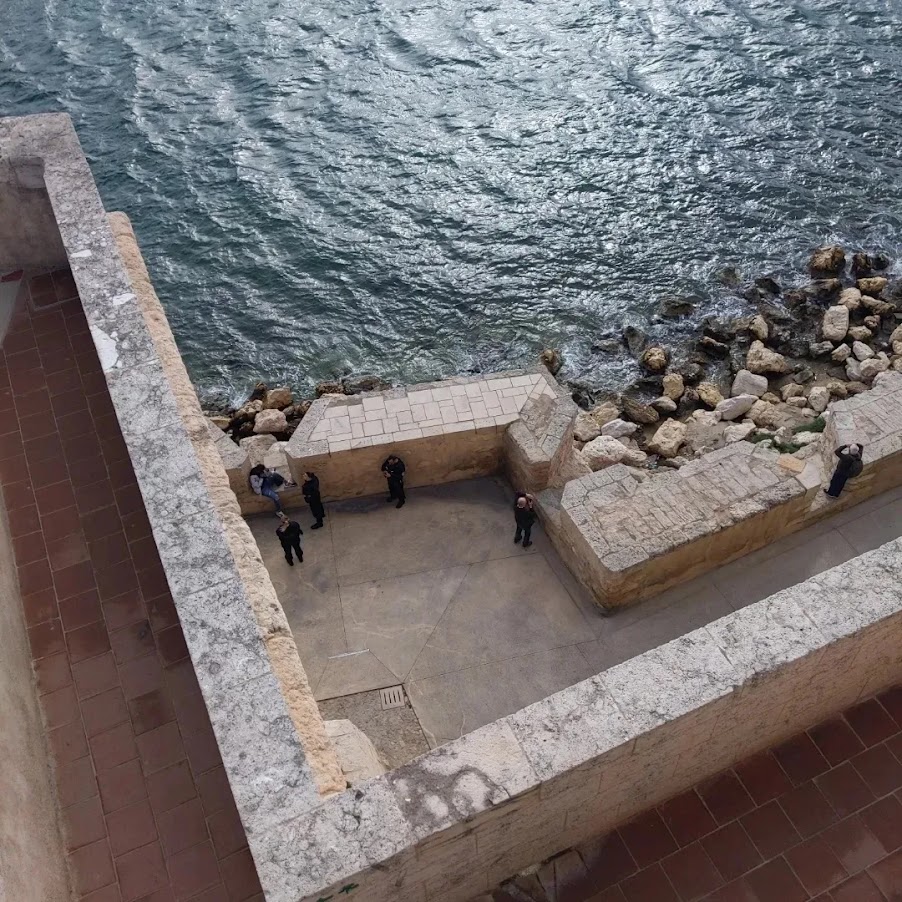School for Sonic Memory in Marseille – Residency Report
Scroll down to visualise this report in PDF format.
Dates: 28 March – 2 April 2022
Marseille – France – Various Locations
The aim of the third and final stop of the School for Sonic Memory (SSM) residency was to enable artists to deepen their understanding of the three Mediterranean cities they visited during the residency, giving them time and space to develop their own research beyond Marseille.
The following document attempts to capture in an abbreviated manner the activities and discussions that took place during the week-long collaboration between nomadic and local residents in Marseille.
Participants included local and nomadic residents:
Asmaa Jama, Onyeka Igwe, Hatem Hegab, Monai de Paula Antunes, Youmna Saba, Maria Sideri, Zoé Le Voyer, Sam Karpienia, Elena Biserna.
Theatrum Mundi team: Andrea Cetrulo and John Bingham-Hall and Cecily Chua
MUCEM team: Emiel Nguyen, Guillaume
Bureste, Enguerrand Lascols
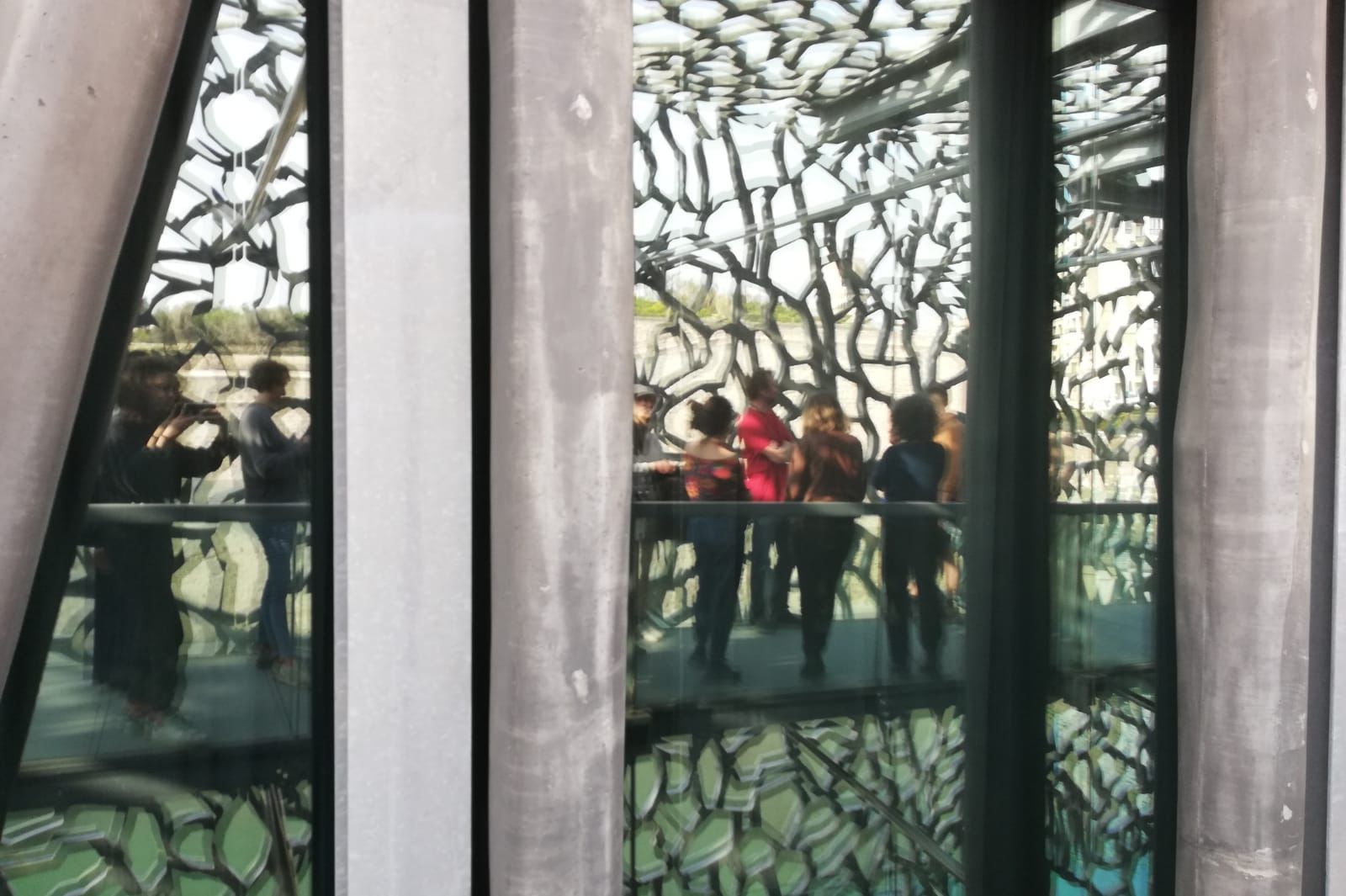
Monday 28 March
10:30 – 14:00
Canal of Marseille walk
The Theatrum Mundi team, local and nomadic residents gathered at a cafe to catch up and make informal introductions. From here the group departed by train towards the outskirts of Marseille to follow a walk guided by John Bingham-Hall. The walk connected to John’s recent explorations of the Marseille canal and its lesser known sections. The Canal de Marseille is a major source of drinking water for all of Marseille, the largest city in Provence, France. Its construction lasted 15 years and was directed by the engineer Franz Mayor de Montricher; the canal opened on July 8, 1849. The canal was a significant achievement of 18th-century engineering, combining bridges, tunnels and reservoirs over mountainous terrain. Until 1970, it was almost the sole water source for Marseille, and it still provides two thirds of the city’s drinking water.
The itinerary included several stops along the way where John read excerpts from the Love Letter to the canal that he has been writing for Theatrum Mundi, which reflects on the prominent role that nature and more specifically, water, plays in the city. Some of the local residents had never visited this area and were pleasantly surprised to discover its existence.
16:00 – 17:00
Visit of the MUCEM workspace and Fort St Jean
The team at MUCEM invited the SSM to visit the designated space for production during the residency, as well as the outdoor space of the building, which faces the Mediterranean and has a privileged view of the city. The tour was guided by an architect who is part of the MUCEM team. The tour culminated with an introduction to the programme curators of the museum, Elisabeth Cestor and Cécile Dumoulin, where there was a chance to collectively discuss the potential contents for an event at the museum in 2023.
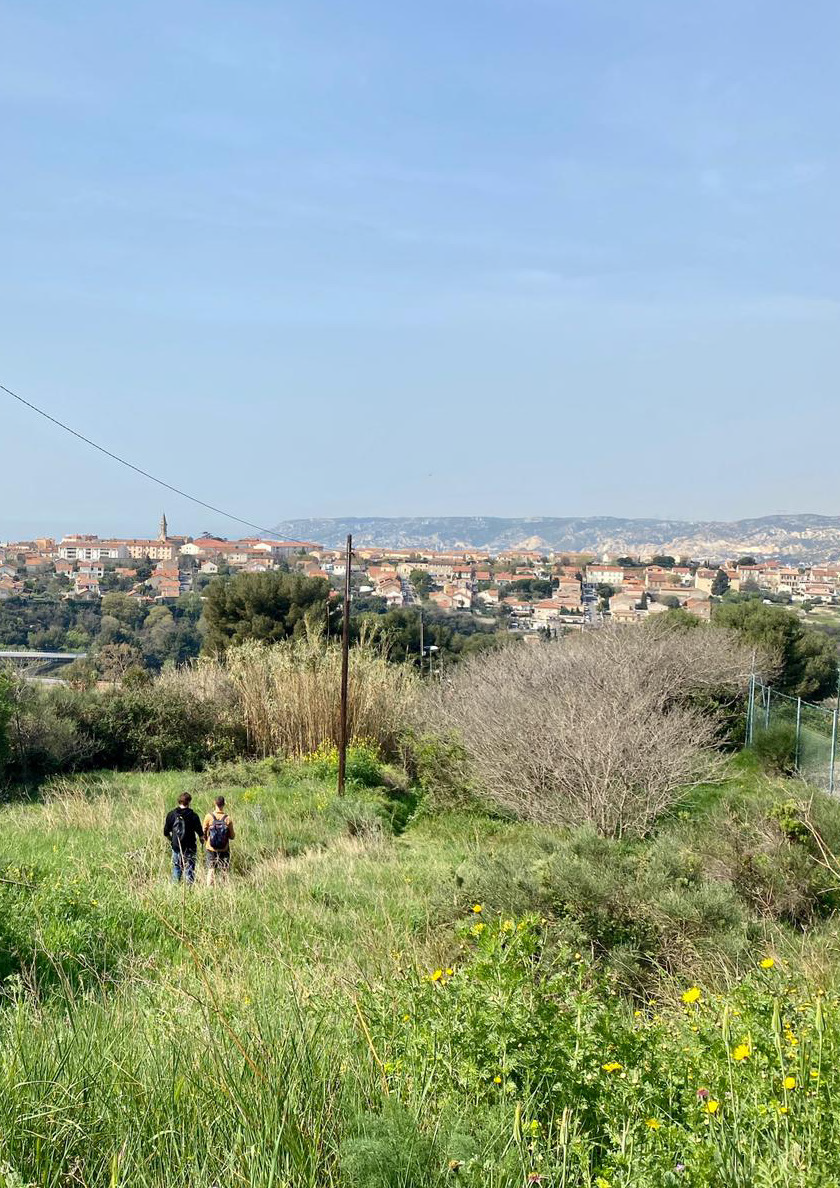
Tuesday 29 March
12:00 – 06:00
The School for Music Memory Radio show at Coco Velten
Nomadic resident, Monai de Paula Antunes, founder and producer of Archipel Community radio, set up and hosted an 18 hour radio show bringing together local and nomadic residents as well as Theatrum Mundi and other contributors based in Marseille and Alexandria. This proved to be an enjoyable and productive opportunity to amalgamate the intellectual work that the SSM participants have been doing and share it with a wider audience. The show was live streamed on Archipel Radio (Berlin), Radio Grenouille (Marseille), and Movement Radio (Athens).
The programme featured:
• Live readings and sound contributions from SSM nomadic residents titled Journey to the Monument; a conversation with Zoé Le Voyer who played sound pieces produced with the Calypso 36°21 collective; the iteration of a public reading by Elena Biserna and collaborators called Cérémonie d’écoute païenne;
• A discussion between musicologist Dana Papachristou and anthropologist Yorgos Samantas on the possibility of a deaf-accessible radio, emerging from their fieldwork on the audibility of sound art and music within a School for Deaf and hard of hearing students;
• A conversation and exchange of sounds on queer sound, memory and nightlife led by John Bingham-Hall;
• A conversation between Yasmine Hussein and Andrea Cetrulo sharing thoughts and stories about Mediterranean mythologies and synchretism;
• A live performance by Sam Karpienia; a live performance by Youmna Saba; a conversation with Alexandrian origami artist and everyday life collector oZoz about his Egyptian music collection;
• A discussion with Radio Grenouille’s Léna Rivière; and a broadcast of an Urok Shiran piece for The City Talks Back, Lovesong Revolutionand another by Ella Finer titles her moon is a captured object.

Wednesday 30 March
10:00 – 19:00
Independent research and night walk with Elena Biserna
The day was left open for residents to carry their individual research. There was also a walk of the city planned by architect and architect Mohamed Gohar (who had already contributed to the programme in Alexandria) but unfortunately due to the weather circumstances it needed to be canceled. Instead, some residents decided to visit the Mémoires des Sexualités archives, which harbors a range of alternative histories of sexuality dating from 1978-2015.
The evening was occupied by a presentation by local resident, curator and researcher, Elena Biserna. Elena presented her work, which focuses on walking as a form of attunement with the city through sound and scores. As a collective exercise, she selected four different scores to be enacted by the group on the streets of Marseille at night.
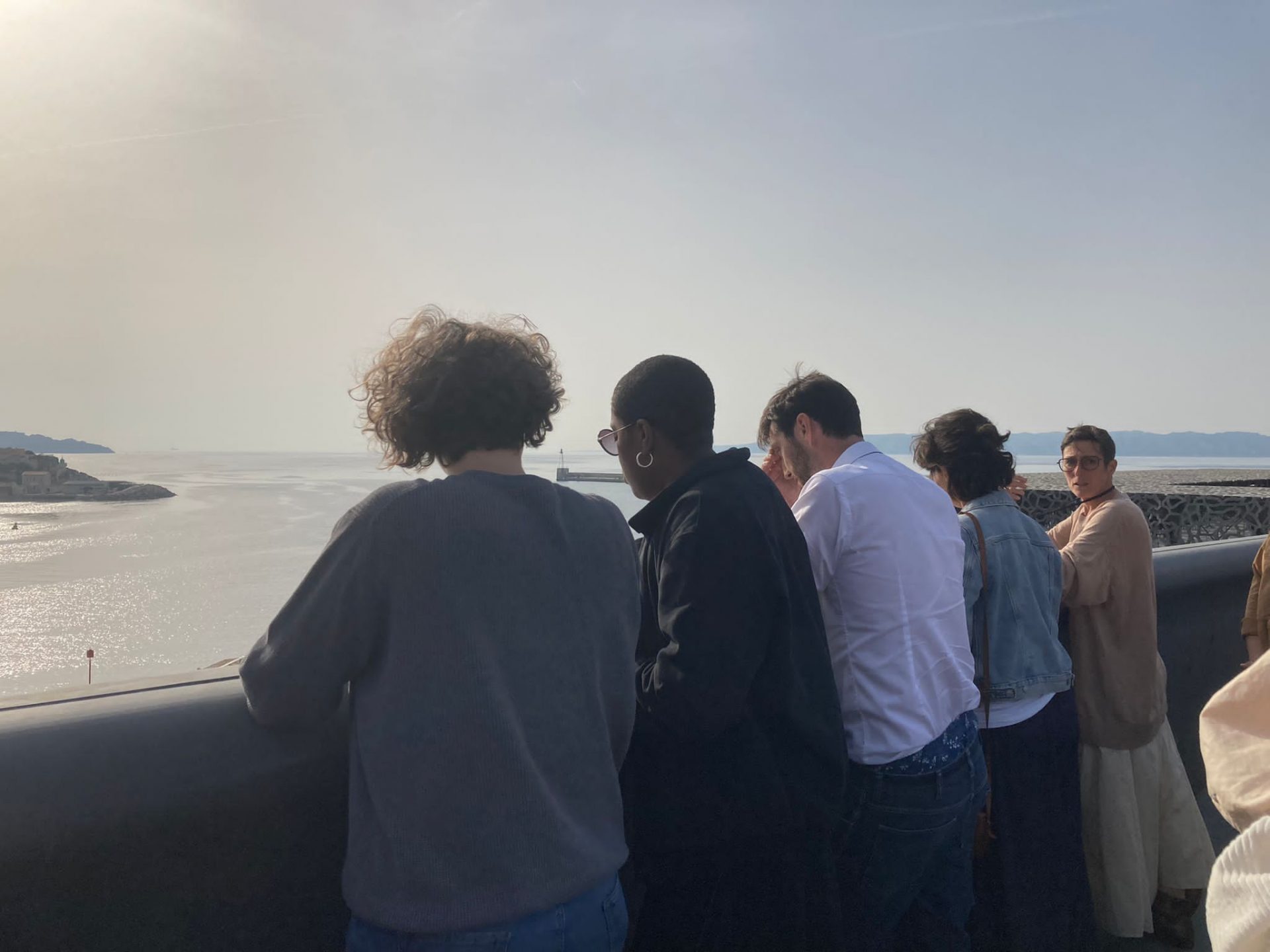
Thursday 31 March
10:00 – 14:30
Research, talk and concert at MUCEM
Residents took the opportunity to individually meet up with local actors who contributed to their research through anb exchange of knowledge: Youmna Saba met Egyptian musician Tarek Abdallah, Asmaa Jama shared a conversation with French Algerian artist focusing on decolonizing heritage, Dalila Mahdjoub, and Onyeka Igwe visited the Alchimie perfumerie to source scents for a fragrance she will create.
In the afternoon, sociologist Constance de Gourcy presented the research she is conducting as part of the The Cargo project, which seeks to reveal through the prism of words, narratives and soundscapes, accounts of current Mediterranean migrations.
The talk was followed by a talk by local SSM resident Zoe Le Voyer, who introduced the group the work she does with the collective she forms part of, Calypso 3621. The presentation focused on their project Out of the Blue Map, a research programme interested in modes of knowledge production surrounding the solid and fluid territories between Morocco, France and the Netherlands. The presentation sparked an interesting debate among the residents around the ethics and responsibility of artists when portraying social realities like the issues that arise from migration.
The evening culminated with a concert by local SSM resident Sam Karpienia, who sings in Occitane, mixing medieval vernacular songs with contemporary pop and rock influences. His lyrics often invoke the figure of the bandit, the outsider and portrays the life of the working class in the region.
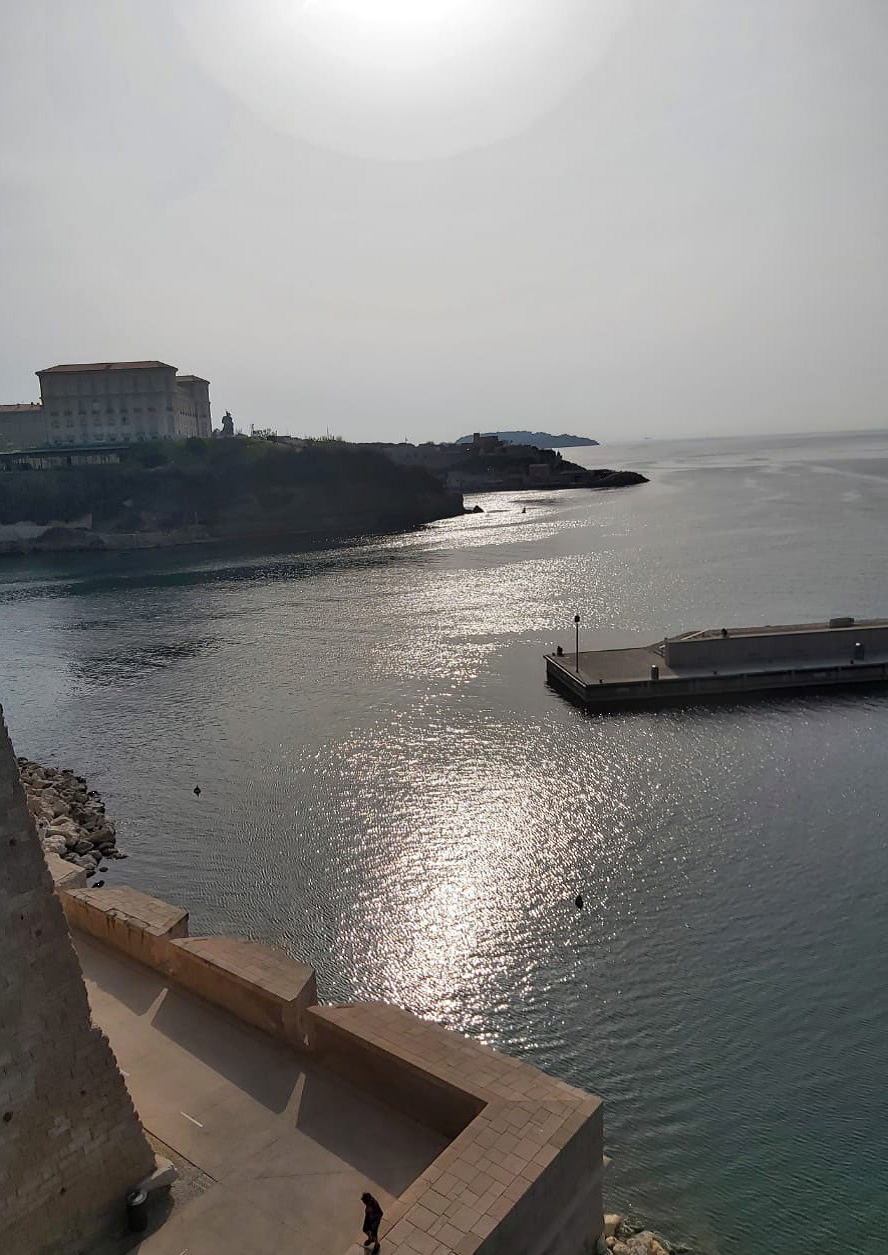
Friday 1 April
10:00 – 14:00
MUCEM’s Centre de Conservation et de Ressources, future planning with MUCEM team and other activities
The curatorial team of MUCEM’s Centre de Conservation et de Ressources opened its doors to for a private tour of the space and its collection. Starting at the library, the collection contains a broad selection of artifacts, some dating back to the 19th century, focusing on popular culture and everyday objects ranging from such religious talismans, cutlery and furniture to skateboards and theatre props. Its mission is to preserve these objects and it counts with acquisitions from both urban and rural settings in France and other placesin the Mediterranean.
After the Centre de Conservation et de Ressources headed towards a nearby restaurant to discuss future plans for the SSM assembly in Biella in July 2022, and the 2023 event at MUCEM.
Other activities included: Visit to the MUCEM temporary exhibition (SIDA), a visit to the Cimetière Saint-Pierre (where Youmna Saba played her oud), as well as a visit to the Calanques, as well as Longchamps, and St Victor Abbey among others.
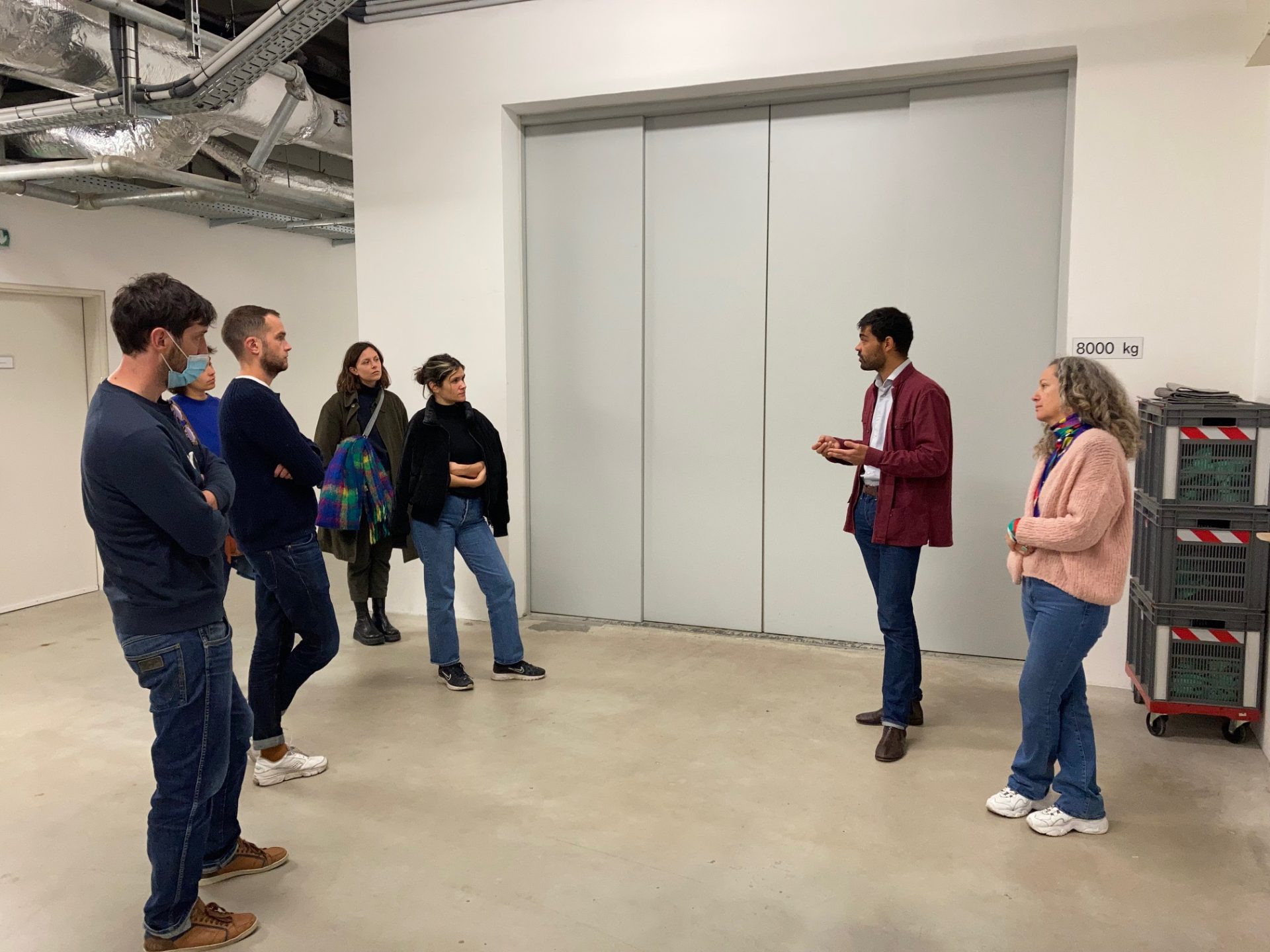
Overview of themes
Expanding on the core themes of the residency (sound as resonance and shared historical past, present and
future imaginaries in Athens, Alexandria and Marseille) some of the threads that emerged during the residency week in Marseille were:
• Archives as ways of reconstructing subaltern experiences of the city (e.g sexuality, gender, migration, class, religion)
• Popular everyday objects and songs as narratives of the city
• Being a citizen of the Mediterranean sea: trans- Mediterranean belonging rather than national identity
• Shared myths and religious beliefs as diplomatic tools conducive to cosmopolitanism)
• Expanded notion of sonic monuments
• Queer experience as infrastructures of care
